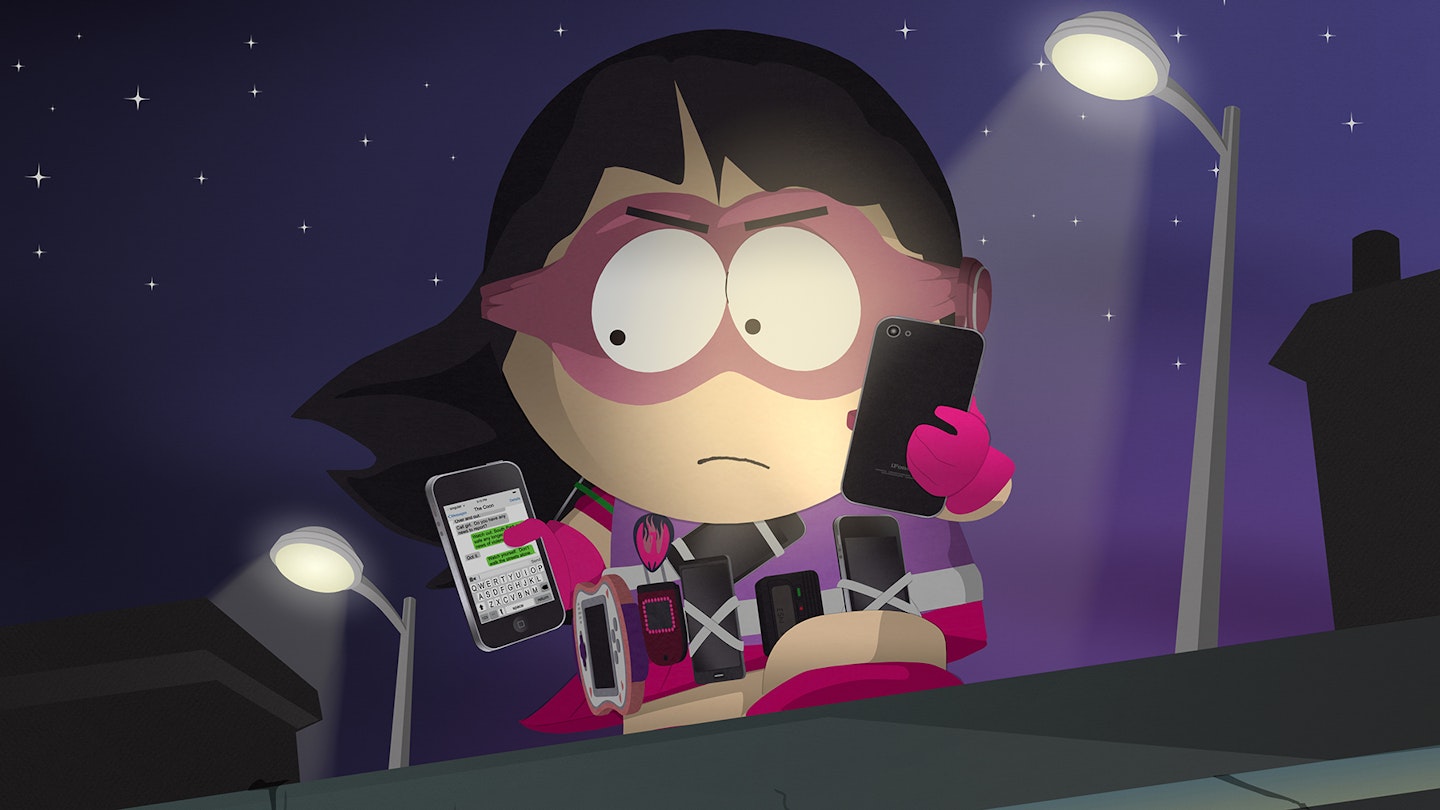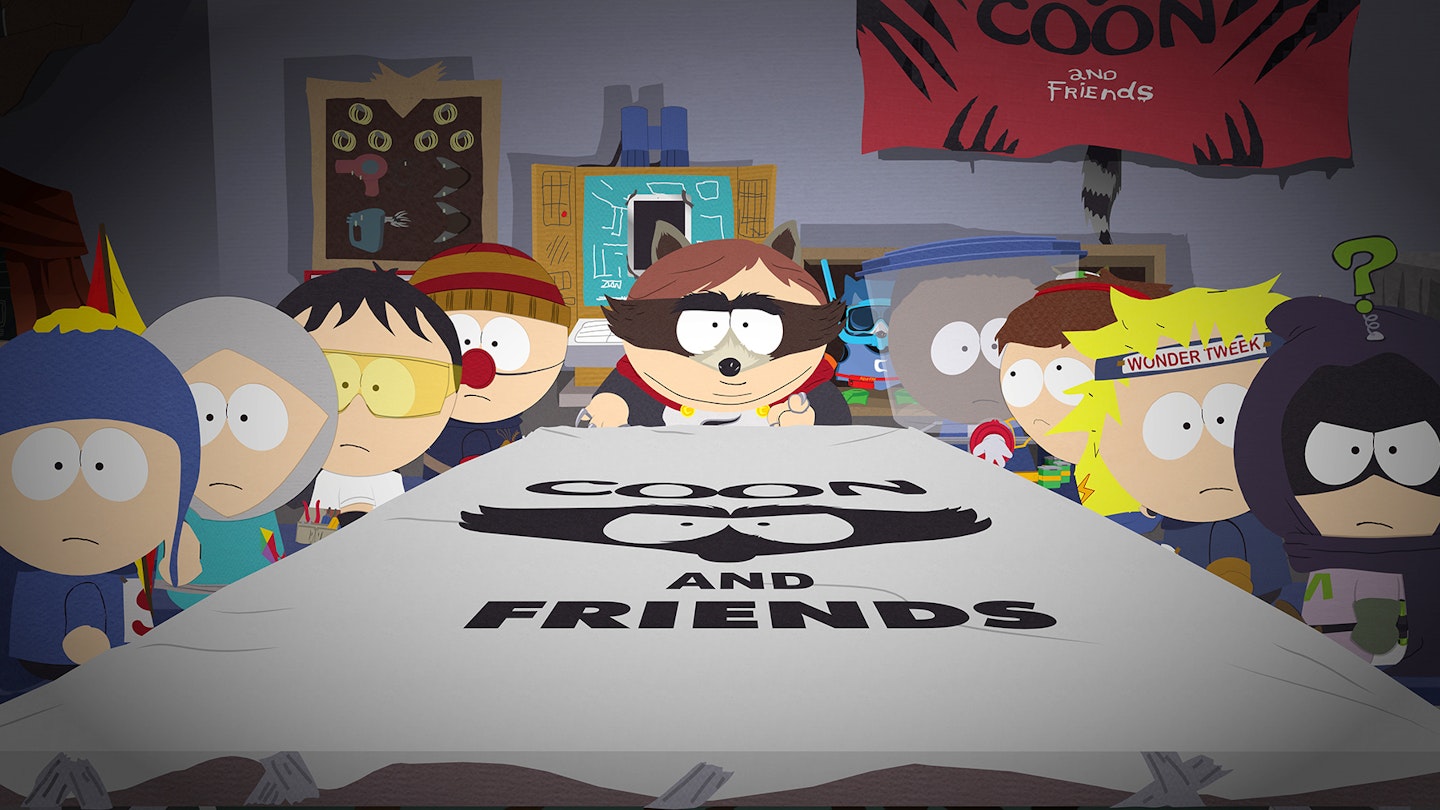It's been over three and a half years since South Park: The Stick of Truth provided a surprisingly polished mash-up of classic turn-based RPGs and TV's sharpest satire/crassest cartoon (delete for preference). Yet this long-delayed sequel begs the question "what took so long?"
This is a South Park fan's dream-come-true.
It's not that The Fractured But Whole (say it slowly...) is a bad game. Far from it: this is peak South Park, a thoroughly authentic visit into Parker and Stone's warped world that tackles themes of police brutality, racism, and other important social issues through its usual lens of cheap profanity and shock comedy. The problem is that beyond that, it too often feels like more of the last game.
The biggest shift comes in switching focus from parodying fantasy and role-playing games to lampooning superhero franchise cinema. Early on, in Cartman's 'superhero lair', you can find a chalkboard with his plans for a multiphase shared universe crossing big and small screens, including Netflix exclusive spinoffs. Sound familiar? With the game's main story focusing on a civil war between rival factions as the South Park kids play super hero, the game never wastes an opportunity to rip Marvel or DC a new one.
The other is in combat, which gets something of an overhaul from the first game. Battles are still turn-based, but now take place on a checkerboard grid layout. This lets you unleash or dodge moves that affect a wider area of attack, or play for control of the area with moves that push enemies back.

Playing as The New Kid once again (a user-created avatar, with more diversity options than previously, but where choices of race, gender, and sexuality mostly lead to gags of South Park's usual sensitivity level) your basic super powers still revolve around farts, but the addition of a surprisingly competent class system lets you modify power sets as you progress. Only three classes are available to start – the self-explanatory Speedster, Blaster, and Brutalist – but more fanciful skillsets such as Plantmancer, Gadgeteer, and Elementalist allow you to mix things up as you progress.
Between battles though, there doesn't feel as though there's been much evolution. There's a fairly extraneous crafting system, and some lulls as you explore areas of the town between battles and plot points, but it largely feels like a reskinned Stick of Truth. Clocking in at about the 25 hour mark, and crammed with all the deranged ideas and profane moments you'd expect from the equivalent of roughly two seasons' worth of the show, this is a South Park fan's dream-come-true, but for more casual players, it may feel like a long, drawn out joke.
